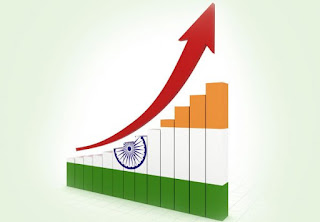Promising growth of Indian economy!
Trend
to remain fastest growing
over
next few years!
The
Economic Advisory Council to the Prime Minister (EAC-PM) had a meeting on 25th
January, 2019 and took stock of the state of the economy. The Council endorsed
that the macro-economic fundamentals of the economy are sound, but challenged
remain, several of which are structural in nature.
While
the prospects for world economic growth does not look very promising,
particularly in the advanced economics, there is sufficient amount of growth
momentum in emerging market economies. India is not insulted from global
developments. Nevertheless, India’s growth is expected to be in the 7-7.5%
range in the next few years; one of the fastest in the world. However, with
reforms designed to address the structural problems, growth rates can easily be
enhanced by at least 1%.
Amongst
the issues discussed by the EAC-PM were agricultural problem, investment trends
(including investments by States consequent to 14th Finance Commission
devolution), fiscal consolidation, interest rate management and credit and
financial market issues. The Council felt that the exchange rate management of
the rupee by the RBI has been sound despit4e the volatility in the price of
crude oil. The good news is that oil intensity (use of fossil as a percentage
of GDP) is showing a declining trend.
There
are indications that financial savings have started going up and there is
credit up tick through private banks to the services sector. The reforms in the
financial sector should be strengthened further building upon what the
Government is already doing.
The
Council felt that the challenge of insularity being seen in external trade
should be reversed through supportive policy interventions because there is a
positive turn in exports that are now visible. The Challenges in the
agricultural sector should be addressed by looking closely at credit flows and
support to employment programmes like MNREGA.
The
EAC-PM strongly feels that there should be no deviation from the fiscal
consolidation target and but there must be continued emphasis on social sector
intervention. Amongst the challenges that need to be addressed are reforms in
the agricultural sector, the MSME sector, skill development, credit issues,
digital payments and the banking sector reforms.






Comments
Post a Comment